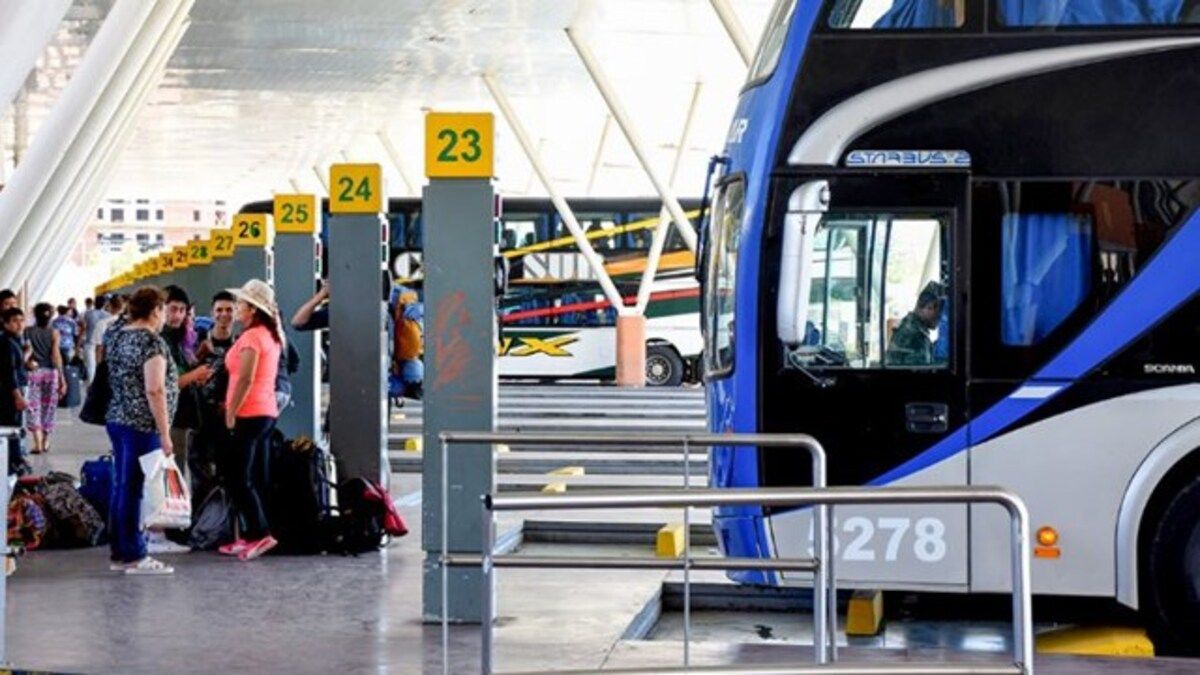As soon as the deregulation decree was known, Long-distance passenger transportation companies told Ámbito that they will stop operating routes that are not profitable for them.. It is based on the Government’s decision to break with the logic of the sector as a public service. The most affected will be towns with less than 10,000 inhabitants and off-season tourist destinations.. Weeks ago, this medium anticipated the measure prepared by the Minister of Deregulation and Transformation of the State Federico Sturzenegger.
The first reading that the business sector made is that the deregulation carried out this morning by the Government “implies the end of public long distance service”. Until now, a certain group of companies, around 120 or 150, had the exclusivity of the operation on certain routes in the country.
These firms operate destinations between capitals or very important cities where there is a lot of demand, but also in between they were assigned other territories such as smaller towns that are not profitable to operate. That is to say, There were rights, but also obligations. Now, that logic is over.
Three sources from the sector confirmed to Ámbito this morning that based on the new conditions, Companies will stop connecting destinations that are not profitable for them. As indicated to this medium, The most affected will be towns with less than 10,000 inhabitants and tourist destinations at times of the year that are not in high season.
On this point, the decree that this media anticipated weeks ago eliminates the criteria of regularity and obligation. “All companies want to go to the Atlantic coast in summer, the problem is who wants to go in August, when demand is not the same in those cities”said a source from the sector.
“Our fear is that the system will be plagued by operators who make it precarious. All Latin American countries saw Argentina as an example of regular, homogeneous transportation, with the same bus systems, with large, established companies, with rules,” explained a businessman in the sector, and warned: ““If very precarious operators enter as self-employed workers, in the first accident what will be affected is the entire image of the sector.”.
With deregulation, several aspects of the current operation are made more flexible, such as the obligation to operate in terminals that allows the authority to exercise controls. In addition, other restrictions are released that will allow the entry of new companies. This implies that it can be operated with combis instead of buses. They will also be allowed to enter airports to pick up passengers.
What actors will be interested in entering the sector? It is not clear, The decrease in demand reaches 30% year-on-year. But if you look at it in historical terms, since the regulatory opening of the year 92 until now the number of annual passengers declined from 50 million to 25 million annually.
The sector does not receive state subsidies. The price level does not seem to be excessively high, a ticket from Buenos Aires to Rosario can be obtained from $12,000 and the entry barriers to the business are not low. That’s why, Companies fear that deregulation will create room for maneuver for opaque businesses to grow.
Source: Ambito
David William is a talented author who has made a name for himself in the world of writing. He is a professional author who writes on a wide range of topics, from general interest to opinion news. David is currently working as a writer at 24 hours worlds where he brings his unique perspective and in-depth research to his articles, making them both informative and engaging.




